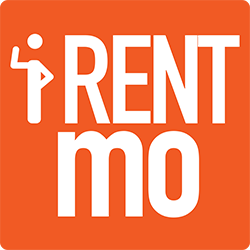Technology is integral to both personal and professional life in the fast-paced world of today. It can be difficult to decide between renting a tablet or a laptop for events, corporations, or individuals looking for portable computing solutions. Every alternative has particular advantages and use scenarios that meet particular objectives. In this post, we’ll examine the distinctions between renting a tablet and a laptop, examining each device’s benefits, uses, and important factors so you can decide which one best meets your needs.
-
Portability and Form Factor
Tablet Rentals: Tablets are renowned for their lightweight and compact form factor, making them exceptionally portable. Their sleek design allows users to carry them effortlessly in one hand, making them ideal for on-the-go tasks. They are perfect for situations where convenience and mobility are paramount, such as trade shows, conferences, and fieldwork.
Laptop Rentals: Laptops are bulkier and heavier compared to tablets due to their integrated keyboard and larger screen size. While they are still portable, they are better suited for tasks that require extended typing and multitasking. Laptops are a preferred choice for business professionals, content creators, and students who need a full-sized keyboard and a more powerful computing experience.
-
Performance and Processing Power
Tablet Rentals: Tablets are equipped with powerful processors and sufficient RAM to handle common productivity tasks, multimedia consumption, and light computing needs. They are perfect for browsing the internet, checking emails, running presentations, and using mobile apps.
Laptop Rentals: Laptops generally offer higher processing power and are capable of handling resource-intensive tasks such as video editing, graphic design, software development, and running complex applications. They come with more extensive storage options and are better suited for heavy-duty multitasking and productivity-driven activities.
-
Input Method
Tablet Rentals: Tablets primarily rely on touchscreen input, which can be intuitive and easy to use, especially for individuals familiar with smartphones. However, prolonged touchscreen typing may not be as efficient as physical keyboards, especially for long-form content creation.
Laptop Rentals: Laptops come with physical keyboards, which are essential for users who need to type for extended periods. The tactile feedback and familiarity of physical keys make laptops the go-to choice for professionals who deal with extensive text-based tasks like writing reports, coding, and data entry.
-
Software Compatibility
Tablet Rentals: Tablets typically run on mobile operating systems (e.g., iOS, Android) and have access to app stores with a vast selection of applications optimized for touch interfaces. While this ensures a smooth user experience for popular apps, some specialized software used in certain industries may not be available or optimized for tablets.
Laptop Rentals: Laptops generally operate on full-fledged desktop operating systems (e.g., Windows, macOS, Linux), providing access to a wide range of software and applications. For businesses and professionals reliant on specific software for their work, laptops offer more compatibility and versatility.
-
Battery Life
Tablet Rentals: One of the significant advantages of tablets is their impressive battery life. They are designed to be power-efficient, allowing users to operate them for extended periods without needing frequent recharging. This makes tablets perfect for events, conferences, and situations where power outlets may not be readily available.
Laptop Rentals: Laptops typically have decent battery life, but it tends to be shorter than tablets, especially during intensive tasks. While modern laptops boast improved battery efficiency, they may require access to power outlets for extended use.
Conclusion
In summary, the choice between tablet rentals and laptop rentals depends on your specific needs and use cases. If you prioritize portability, touch-based input, and excellent battery life for light productivity and multimedia tasks, a tablet rental is the way to go. On the other hand, if you require higher processing power, extensive multitasking capabilities, and compatibility with specialized software, a laptop rental will suit you better.
Ultimately, some users might find that a combination of both tablet and laptop rentals is ideal, as they complement each other in various scenarios. When opting for rental services, consider the reputation of the provider, their device offerings, technical support, and pricing to ensure a seamless and satisfying experience.
Regardless of your choice, tablet and laptop rentals offer cost-effective and flexible solutions for individuals and businesses seeking on-demand computing power without the commitment of ownership. Assess your requirements, weigh the pros and cons, and make an informed decision that aligns with your goals and enhances your productivity.
